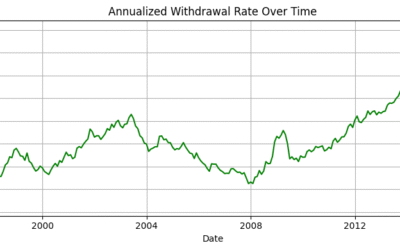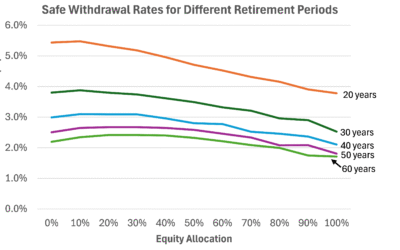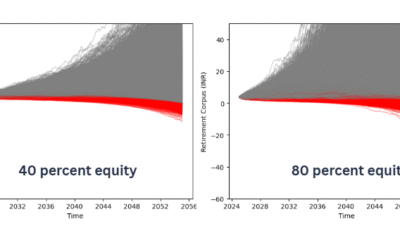Universal basic income can defuse the wrath of the intellectual class against the disruption caused by capitalism
In 1942, Joseph Schumpeter, the famous Austrian economist, published his magnum opus Capitalism, Socialism And Democracy. In a detailed section titled “Can capitalism survive?”, Schumpeter made the claim that capitalism’s success will lead to its own destruction. This prophecy has been unfolding over the last few decades with the slow decay of capitalism as reflected in the rise of the welfare state and increasing regulation. There is, however, one policy which, at the very least, has the potential to delay the prophecy from unfolding—universal basic income.
Global financial crisis has increased the relevance of Schumpeter’s prediction: Capitalism has seen multiple phases. The period from the start of the Industrial Revolution in the 1760s to the Great Depression in 1929 can be referred to as the period of unfettered capitalism. In the 1930s, we saw increasing fetters being put on capitalism because of the Great Depression and the ascendancy of Keynesian economics.
Keynesian economics took a break in the 1980s during the neo-liberal revolution, with political figures such as Margaret Thatcher and Ronald Reagan cutting down the size of the government. Since the global financial crisis in 2008, however, this neo-liberal consensus has been decimated with the clamour for higher social safety nets and greater regulation of market forces.
Thus, the global financial crisis and a decade of its repercussions has brought us right back to Schumpeter’s prognosis of the slow death of capitalism. Out of all the factors Schumpeter outlined for the death of capitalism, he emphasized most on the growing hostility towards capitalism led by the emergence of an intellectual class. A closer and deeper look into this factor follows.
Emergence of the intellectual class: Capitalism grows by promoting a strong rationalizing attitude that calls into question the existing order. The stage for the Industrial Revolution, when the capitalist engine was humming at its prime, was set by this rationalizing attitude gnawing away at the privileges of kings, aristocrats, and feudal lords and leading to the rise of the bourgeois (entrepreneur) class.
This brings us to the central insight of Schumpeter’s analysis. The rise of the bourgeois class and the intensifying of the rationalizing attitude leads to the growth of another class that opposes capitalism, the intellectual class. In Schumpeter’s own words, the “bourgeois” will find to their “amazement that the rationalist attitude does not stop at the credentials of kings and popes but goes on to attack private property and the whole scheme of bourgeois values”.
But why does the intellectual class bay for capitalism’s blood? Capitalism is an evolutionary system in which old methods of productions are destroyed and new methods introduced by recurring cycles of entrepreneurial energy. Schumpeter famously called this the process of “creative destruction”. Firms in a capitalist system are continuously exposed to the threat of changing surroundings and must, therefore, build a moat around themselves for survival.
This moat is built through practices such as product differentiation, advertisements, patents and discriminatory pricing—policies that increasingly come under the critical gaze of the intellectual class as being suboptimal to maximum production. Also, the process of creative destruction fans business cycles and the disruption that accompanies such cycles intensifies the demands for social justice.
The modern tools of the intellectual class: In the past, the printing press and spread of literacy—both offshoots of capitalism—strengthened the hands of the intellectual class which, ironically, fights capitalism. The modern equivalent of this is the advent of social media and free information.
Social media, a creation of capitalism, has brought the intellectual class and the masses in closer contact than what the printing press did. Also, the unlimited and freely available information on the internet, made possible to a large extent by advertisement revenue from capitalists, has made it possible for the masses to swell the ranks of the intellectual class. The pre-eminence of the intellectual class in modern times is manifested in the strong, vocal, and erudite group we commonly refer to as liberals.
Universal basic income can defuse the wrath of the intellectual class: Every attack on capitalism has seen policymakers introduce temporary palliatives such as minimum wage, progressive taxes, higher social safety nets, and more regulation. However, the combination of the growing intellectual liberal order on the one hand and rising inequality, youth unemployment and multiple economic crises on the other, is ominous for capitalism’s future. The only policy that seems capable of significantly countering the dissatisfaction espoused by liberals is universal basic income.
Universal basic income has two core advantages. First, it has the potential to dramatically eliminate poverty by lifting a section of the population above a certain income level, thus significantly assuaging the concerns of the intellectual class. Second, direct income transfers interfere the least with capitalism’s price mechanism as compared to price controls, quotas and licensing.
Whether a universal basic income can permanently stop the forces contributing to capitalism’s decay is something only time will tell. At the very least, we can be certain that universal basic income can extend capitalism’s life in the short term. This still makes it a compelling policy for capitalists to support, for as Schumpeter highlighted, in matters of structural changes, “a century is a short run”.
(This article was published in LiveMint on February 24, 2019 and can be accessed from the link https://www.livemint.com/opinion/online-views/opinion-decay-of-capitalism-and-an-elixir-called-universal-basic-income-1551030188513.html)







0 Comments